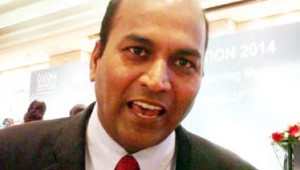By Benedict Paramanand, Editor ManagementNext & SustainabilityNext
It’s a refreshing thought for a lot of us that India now has a new icon to look up to.
In a country with very few living examples to learn from, Arvind Kejriwal’s is almost like a reality show.He has not only taken the lead in fighting many pressing issues for more than a decade, but, while doing so, has a few lessons to teach business leaders, executives and students, as they grapple with their own challenges. Remember, his Aam Admi Party is an organization that has delivered in the recent elections with the promise of doing more in the coming days.
Here are a few lessons that I have gleaned by looking at how Kejriwal has been working and leading from 2000 onwards when he started his first organization Parivarthan (meaning change). Kejriwal even won the prestigious Ramon Magsaysay Award for Emergent Leadership for it in 2006 for this. His biggest contribution to India so far is leading the campaign for right to information (RTI), which has since been made into a law and has become a powerful weapon for change and hope to ordinary citizens.
Here are ten lessons on display. There could be many more:
• Clear Purpose drives people and organizations to go beyond their own capability. Ordinary people end up doing extraordinary things
• Value those who mobilize (inspire) people to commit, not just those who talk
• Take the risk, offer the Big solution, don’t worry about the end result
• Don’t sulk when a big leader quits (Anna Hazare). Go on with single minded focus
• If you have imagination, resource is never a constraint.
• Have an open-door policy – helps in keeping the air and mind fresh
• Authenticity usually wins
• Learning is never-ending, but acting immediately is imperative
• Governance and transparency key to enlist trust
• Marketing and branding through relevant imagery – Broom/Gandhi Cap works wonders
Apart from awakening the common man and the middle class, Kejriwal has also awakened political leaders’ consciousness that jaded systems can indeed be transformed. That politics doesn’t always have to be about expediency, it can instead expedite the process of delivering on commitments made in the manifestos.
Kejriwal has been a disruptor all his life. This time, he is likely to disrupt traditional political parties by galvanizing the youth brigade to demand change from within. It may very well be the end of gerontocracy and the emergence of youth who have so far been too afraid to speak out. Remember, 70 percent of India is under 35.
The good news is, Kejriwal is young (45) and is not a flash in the pan. He is an IIT alum, has worked with a corporate house of repute and has been a high ranking civil servant. He started by working with Mother Teresa in Kolkata between his college and his first job. When blessed with a natural flair for leadership, all these add up nicely.
Today, Kejriwal is leading and riding a wave and even he cannot stop the idea of a New India whose time has come. When Wipro Chairman Azim Premji wrote this a few months ago in ‘Reimagining India – Unlocking the Potential of Asia’s Next Super Power’, even he may have had a niggling doubt: “The most important triumph of the idea of India is that the dreams of 1947 still have force and value.” Not any more, I guess.
Benedict@managementnext.com
Twitter handle – benedict9










Recent Comments